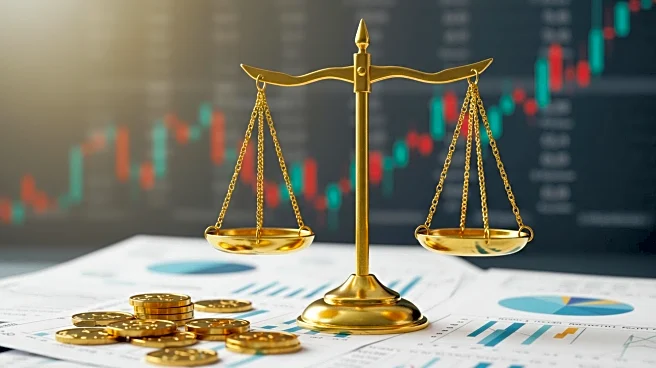What's Happening?
The dollar has gained strength ahead of Federal Reserve Chair Jerome Powell's anticipated speech at the Jackson Hole symposium. Traders are closely watching for indications of a potential interest rate cut by the U.S. central bank in September. Despite weak job reports for July, the possibility of higher inflation due to President Trump's trade tariffs is causing hesitation among policymakers. The theme of this year's Jackson Hole symposium is 'Labor Markets in Transition,' which may influence Powell's remarks. The dollar index rose by 0.27%, with the euro and yen weakening against the greenback. Fed funds futures traders are pricing in a 77% chance of a rate cut in September, with expectations of further cuts by year-end.
Why It's Important?
The potential interest rate cut by the Federal Reserve is significant for the U.S. economy, as it could impact inflation and employment rates. A rate cut might stimulate economic growth, but it also poses risks of increased inflation, especially with ongoing trade tariffs. The dollar's strength reflects market confidence in the U.S. economy, but any changes in monetary policy could alter this perception. Businesses and investors are closely monitoring these developments, as they could affect stock market performance and international trade relations. The outcome of Powell's speech may influence future economic strategies and decisions by the Federal Reserve.
What's Next?
Following Powell's speech, stakeholders will be assessing the Federal Reserve's stance on interest rates and its implications for the economy. The September meeting will be crucial, as policymakers will decide whether to proceed with a rate cut. Market reactions and economic data leading up to the meeting will play a significant role in shaping the decision. Political pressure from President Trump to lower rates adds complexity to the situation, potentially affecting the Fed's independence and decision-making process.








